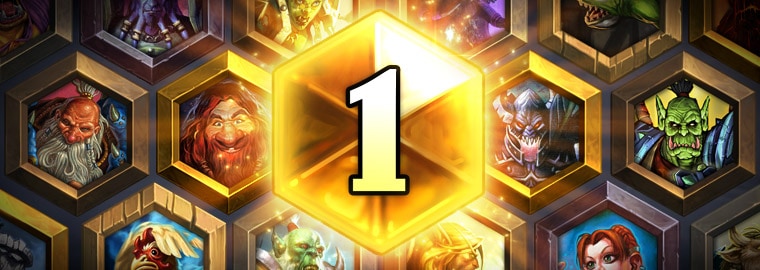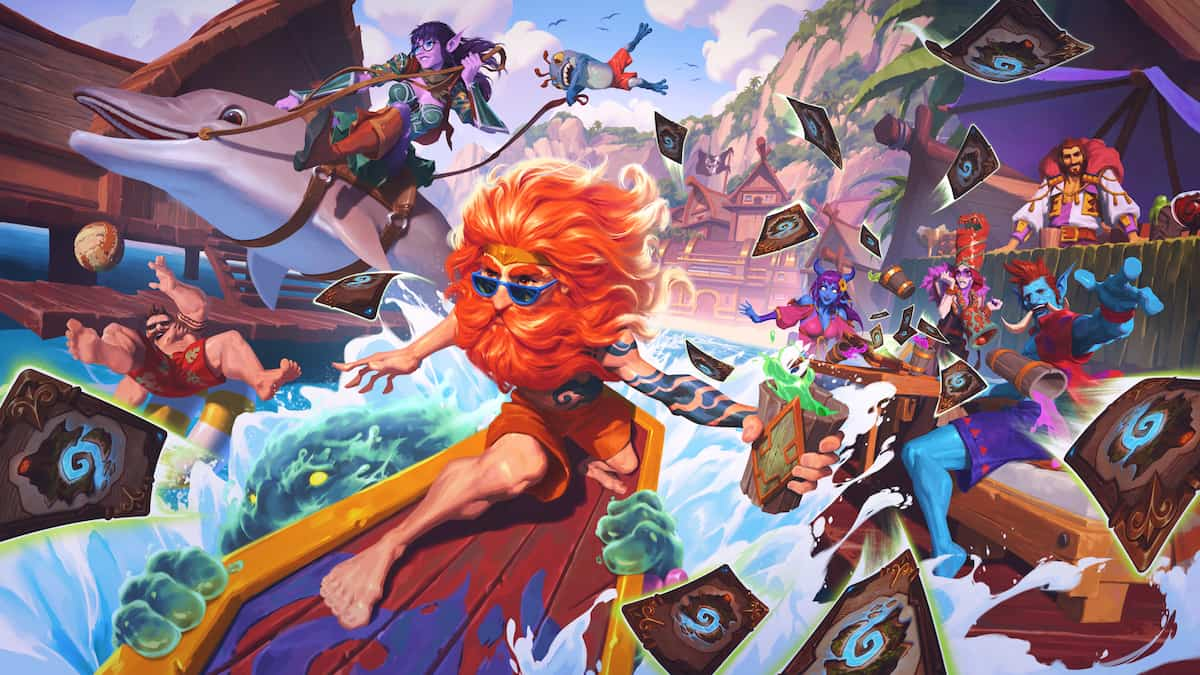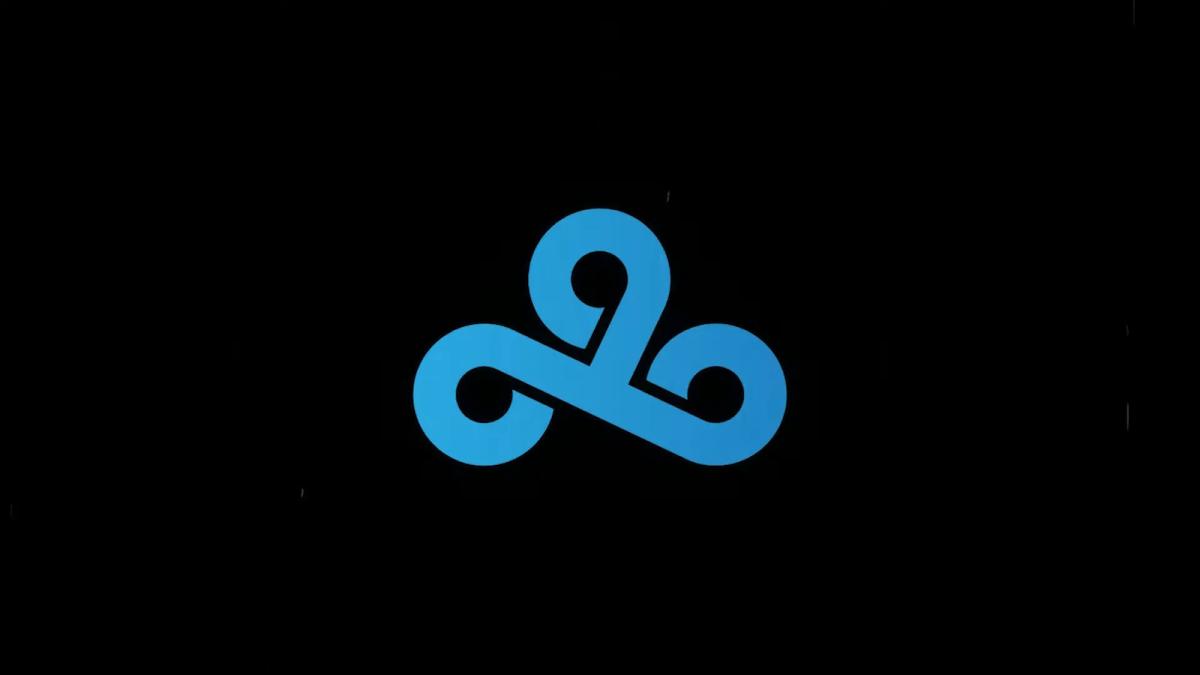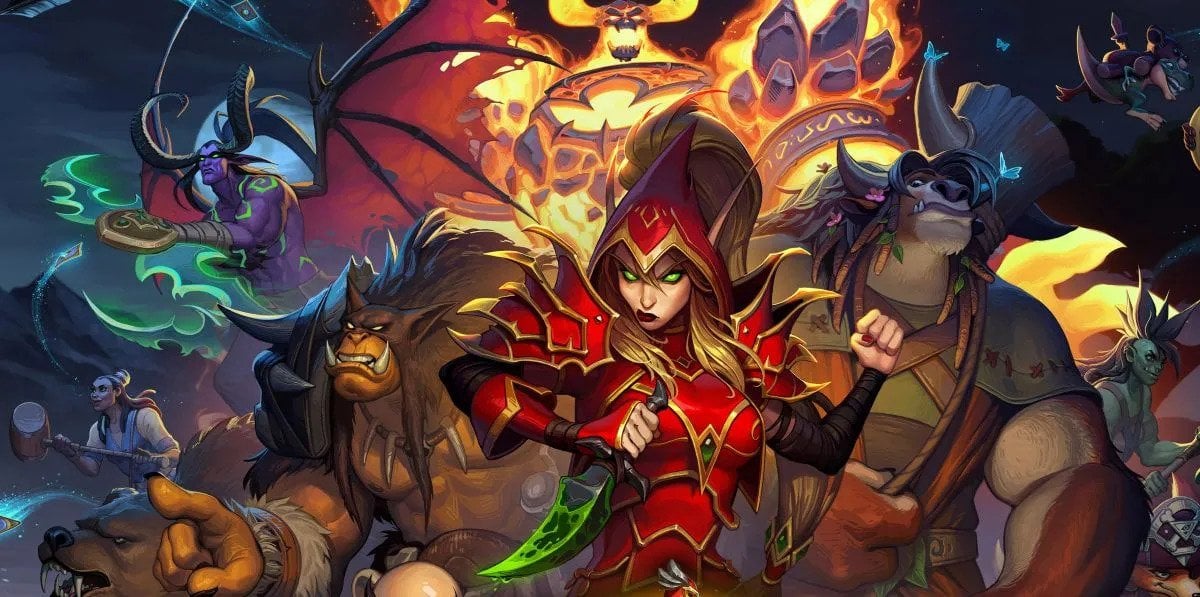Introduction
Hi guys, welcome to ‘The Grind’. The Grind is a four-part series aimed helping you to achieve the dream of ranking up to Legend (for the first time). As always guys, comments, likes, questions, etc are welcome.
The four parts are:
- Part I: Introduction & General Tips
- Part II: Research & Self-Mastery
- Part III : Deck Selection
- Part IV: Psychology
Right now you are reading Part II. In this Part I am going to focus on things such as why (and what) you should research and we will also look at the concept of self-improvement. Let’s get cracking!
On Self-Mastery
So this next tip ought to be obvious, but nonetheless might be worth stating:
TIP #1: Strive to be the best you can be.
As I mentioned in Part I, the grind to Legend takes time and dedication. It also takes considerable skill, and that is what I’m going to talk about in the next couple of paragraphs. As you get closer and closer to Legend the quality of opponent increases, and the higher they are the harder they are trying to win. In short, without a good degree of skill you are not going to progress beyond a certain point.
Thus, on your journey to hit Legend, make sure you do not lose sight of the idea of self-mastery; maybe you won’t hit Legend this season, but if you focus on self-improvement than with patience this accolade will come, with time. For me personally it took about 8 months from first picking up the game to hit Legend for the first time. Meanwhile it took Magic-Pro Gabe Walls just 3 days to go from ‘no idea, no cards’ to Top-Legend. I guess what I am saying it that it takes as long as it takes, for some people the game is quickly understood but for others it takes time to develop the skills needed.
The trick? The trick is that there is no trick: hard work, practice, and a strong desire to improve will, with time, get you to Legend.
While on the topic of self-mastery let’s quickly pose an interesting philosophical question:
“How does one improve…at anything?”
Practice is of course an obvious answer, but its easy to imagine a situation where two people both practice a skill for 2 years but one of them ends up significantly better than the other. How can we explain that difference? Innate Talent? Perhaps that’s the answer. But that is a rather unattractive answer because ‘talent’ is not something we have any control over. The answer I like is ‘quality’. If I practice a skill for two years but my practice is somehow better or more efficient than yours then it’s hardly surprising that I end up being better at X thing than you. This then begs an interesting question:
“What method(s) are the most effective ways to learn/practice a skill?”
The cool thing about this question is that whenever anyone does anything amazing the first question a journalist will usually ask;
“Dude, just how the fuck did you get so good?”
The answers can be interesting in what they reveal. Let’s take an example from the business world:
Dyslexia is a type of learning difficulty that puts those with the condition at a significant disadvantage when it comes to academia. And yet, those with the condition are disproportionately found in the ranks of entrepreneurs. Presumably then, there is something about the condition that is advantageous when it comes to business. Why might that be? Well, in addition to possible advantages when it comes to creative thinking, dyslexic’s often learn to communicate (verbally) and delegate tasks more effectively than the average population. This hypothesised link perhaps reveals something about success in business that we can try to emulate:
Success in business is being able to effectively communicate with– and use the skills of– others.
And that’s a bit of advice everyone can follow. Is this advice limited to just business? Probably not. Here’s a Magic: The Gathering article that suggests networking is key to success (point 9) in Magic. But what about Hearthstone? Well, In the words of Thjis:
“To prepare well for a tournament, practice is key. And ladder is not a good place to test your tournament decks. The meta is totally different and you don’t get the match-ups you want. It is probably not impossible to prepare well without having a team, but it’s much harder. The way you can test your new decks the best is playing them against good players, otherwise it’s still hard to say if the deck would be strong enough for a tournament. Sharing thoughts, analysis and game statistics is something we use a lot in the team”. (source)
Now sure, Thjis is talking about Tournament (as opposed to Ladder success) but nonetheless, I see no reason why this wouldn’t be true of ladder as well. So what’s my tip?
TIP #2: Network: Everything is easier with Friends.
I’m almost finished with this section now guys, I promise. But before we leave the topic of Self-mastery I want to give you a few tips I have heard over the years about the best ways to improve at Chess:
- Practice Tactics (Hearthstone equivalent: Lethal puzzles and In-depth Turn Analysis)
- Study your own games.
- Play players better than yourself.
In Chess, reviewing past games is frequently cited as one of the best methods of improvement. Is it good advice for improving at Hearthstone? Well, If you want to see a master-class of this sort of self-criticism in action I would strongly recommend Lifecoach’s stream. Whenever he gets a tough position, he’ll frequently screenshot it and after the game discuss the position with chat. This is a good habit to try to emulate.
In his Reddit AMA Thjis also wrote this:
“Players are not critical enough. If they win it’s fine and if they lose, they normally don’t want to see it back. The way to improve is to look critical to[sic] all your plays, and if you could increase your % during the game. This is something I mainly improved on because of Lifecoach.” (source)
We have Chess players and Thjis all suggesting that reviewing past games is a good way to improve. I don’t know about you, but consider me fucking sold on the damn idea.
TIP #3: Review your past games (wins and losses), what mistakes can you learn from?
As for the third point about playing versus strong players, well:
“[…] The way you can test your new decks the best is playing them against good players[…]” ~Thjis (see the first quote above).
Some of you may remember that in Part I I suggested that you start the season early in order to play a bunch of Ex-Legends. Well, now you know why I suggested that. 🙂
In a nutshell, If you want to hit Legend you should always be looking for ways to step your game up. Figuring out how to do that is not always easy, but as I have just shown we can take and apply different idea’s from a variety of different fields and apply said idea’s to Hearthstone.
Okay, lets let’s talk research.
Research I: General Stuff
The next three sections are going to talk about research; during your Legend climb you might need to do a lot/little depending on what you already know. There are 3 basic types of research you need to do:
- General Stuff
- Deck specific (e.g How to play your deck, its match-ups etc)
- Meta Trends (e.g How popular is X deck, How popular is Harrison Jones)
The next two sections will talk about deck and meta stuff, this section meanwhile explains what general research is and why you might need it.
“What counts as general research?”
Well, general research is a fairly broad subject, it covers things like learning game mechanics, statistics & probabilities, general theory, psychology and so on. The aim behind this type of research is to try to ensure that you have the three essential Hearthstone skills you need for success:
- The Knowledge (of cards, mechanics, interactions, meta’s, deck strategy, match-ups, etc).
- The Attitude (the will to win, ability to cope with/avoid ’tilt’, etc)
- The Skills (this is the ability to apply your knowledge in a technically precise way during your games).
Once these three things are at a high enough standard Legend will be possible. Basically, general research is all about ‘self-mastery’.
“What sort of things to I need to Research?”
That’s a great question, but I cannot really provide a general answer because what you need to research depends upon what you already know. For those very skilled/experienced in Hearthstone general research won’t take very long at all. Others however, may have a metric shit tonne of stuff to read about before they will be ready to achieve the dream. Below I have provided a rather basic list of things you may wish to study before tackling Ladder this season:
GAME MECHANICS
EXAMPLE QUESTION(S):
“What happens when you try to Flare a Mage’s Counterspell?”
POSSIBLE SOURCES OF INFORMATION:
Quizzes, Advanced Rulebook, Ask someone (e.g. on forums, in person, etc), test it in game-client, etc)
STATISTICS & PROBABILITIES
EXAMPLE QUESTION(S):
“How often does a Taunt drop out of a Piloted Sky Golem?”
“How often does Doomsayer drop out of a Piloted Shredder?”
“How often will I draw into X card by Turn Y?”
“If there are 3 minions on Board, what is the probability that Boom Bot will do X damage to Y target?”
“If I Brawl, what is the probability of X outcome?”
POSSIBLE SOURCES OF INFORMATION:
Hearthstone Articles, Articles on Probability, Basic Math Class, Reddit, etc
GENERAL THEORY
EXAMPLE QUESTION(S):
“What is Tempo/Card Advantage/etc and how can I use it this knowledge to beef up my game?”
“What is a ‘Tell’ and how I can exploit them?”
“What is a ‘bluff’ and how can I trick my opponents with them?”
“What does “playing to win” and “playing to not lose” mean? How might this information help me?”
POSSIBLE SOURCES OF INFORMATION:
Hearthstone Articles, General Card Game Articles, Hearthstone Forums, Reddit, etc
PSYCHOLOGY
EXAMPLE QUESTION(S):
“What is ‘Tilt’ and How can I avoid/recover from it?”
POSSIBLE SOURCES OF INFORMATION:
Hearthstone Articles, Poker Articles, Know Thyself
This first thing I want to say is that the above questions are just examples of things that might help you; it would be a terrible mistake to think that this is a laundry list of things you must know in order to hit Legend. For example, I’ve written a fairly detailed guide on bluffing in Hearthstone, but 99% of time I don’t bother with this sort stuff on ladder and yet it hasn’t stopped me from hitting Legend.
As for mechanics questions, obviously you should prioritize learning about popular meta cards and also the cards you intend on playing with yourself. For example, the Shredder question above is more important that the Sky-Golem question since the former card is more likely to be seen on ladder.
Okay, to let’s wrap this section up:
TIP #4: If you want to climb all the way to Legend, make sure you learn everything you need to know beforehand.
Example Lesson In Tells
I recently published a short video on my Youtube channel, it’s a quick video guide about ‘tells’ in Hearthstone. For some readers this stuff might be a bit elementary, but to others this might be something of a revelation.
I’ve included this video in this article chiefly because I think it’s a good example of the sort of thing you need to know. And if you don’t know it, then this is a good example of the type of thing your research needs to find. By the way, I am almost certain that the majority of Legend-ranked players use the technique regularly.
https://www.youtube.com/watch?v=iPTi2jamxt0
Research II: Deck Stuff
In Part III I talk about deck selection, but for now we are going to pretend you have already made a decision regarding what deck(s) you are going to play this Season. After you have made a decision regarding what deck(s) you are going to play it only makes sense to learn about the deck.
TIP #5: Research your Deck(s)
What you want to do is find resources on the deck(s) you intend to play. You want general strategy information as well as Match-up information (especially Mulligans), as well as a general understanding of where it ‘fits’ in the current meta. Understanding your deck improves your proficiency with it, and that will (over a sufficiently large sample of games) improve your win-rate.
SOURCES OF THIS INFORMATION:
Deck Guides, Pro-Streamers (if they happen to playing the deck), Tournament Vods, Meta Reports, Reddit, etc.
As a slightly more advanced tip, you should prioritize your research according to its usefulness.
TIP #6: Don’t study all match-ups equally; Almost half your research-time should be focused on the beating the Top 3 meta decks (with your deck).
Why the Top 3 and not the Top #4 Decks? Well, this figure isn’t arbitrary, I explain why you should focus on the Top 3 decks in Part III of the series.
To explain why your time shouldn’t be divided equally among all decks please read the following hypothetical:
Imagine a fighting game with 100 characters. You have only 100 hours to practice for a major tournament. How does one best allocate ones time?
(1) One Hour against Each Character.
(2) Practise proportional to the expected probability that X character will be played at the tournament.
In terms of fun maybe (1) is the best option since it offers the most variety. But ‘Spike’ (see Part IV) likes to win, his practice will probably look a lot closer to option (2). If at this tournament you expect to face “Dr. X” ten times and “Mr. T” zero times then you probably improve your chances of winning the event by spending Ten Hours focused on beating “Dr. X” and just ignore the “Mr. T” match-up.
I’d argue that Hearthstone is basically similar: If X deck is popular (e.g. Secrets Paladin) then your time is better spent discovering the ways in which this deck can be defeated (as opposed to spending an equal amount of learning how to beat this deck and some other unpopular match-up). Basically your ladder win-rate is hardly affected at all by your complete ignorance of a wholly unpopular match-up, but it is considerably affected by your understanding of the most popular match-ups.
To give a very practical example of this advice:
Let’s say you want to play Secrets Paladin. After 100 games you see 1 Shaman and 30 Tempo Mages. Now let’s say you are at work and have a little bit of free time to read a guide or two. In this example, it might be worth reading a guide on Tempo Mage (pay particular attention to any match-up advice written from the Mage perspective). Why might such a detailed look at Mage be useful?
“Know thy self, know thy enemy. A thousand battles, a thousand victories.” ~Sun Tzu (The Art of War)
As for the Shaman Match-up, this level of detail is probably a waste of time (all you really need to do is check whether your Mulligan is correct or not); In fact, instead of looking at Shaman your time would probably be better spent reading a different Mage guide, fishing for even more clues for beating them.
In short:
ME: “How to you beat [Insert popular deck] as Secrets Paladin?”
YOU: “Well, after spending a shit tonne of time watching every tournament Vod I could find in this match-up and reading every guide on the deck I could find I think the trick is to the match-up is…”
Good Answer, young Padawan. Next Question:
ME: “How do I play as Secrets Paladin against Mill Rogue?”
YOU: “Like I give a flying fuck.”
Ah, the force is strong with one.
Research III: Meta Stuff
This tip is basically about adapting to change as fast as possible. Let’s start with an example:
Suppose its Turn 11 against a Dragon Priest (You = Hunter). They play out Deathlord and after playing Hunter’s Mark they instantly concede.
YOU: “Deathlord in Dragon Priest!?”

At this juncture you have two choices;
(1) Queue into another game
(2) Research the topic; Why is Deathlord being played in Dragon Priest?
I recommend that, once you hit Rank 5 you always opt for the research path. The reasoning is really simple: If this a new meta deck, there is a reasonable chance that you will play against this deck sometime soon, and if you are unprepared maybe you lose next time.
But in this hypothetical example you ignore my advice and just queue up.
A few games later you play against another Dragon Priest and just as before they drop a Deathlord. You can kill it, but it feels inefficient to do so you let it live.
“What is a 2/8 going to do me?” You say to yourself.
And then, all of a sudden the 2/8 gets buffed by Divine Spirit and Inner Fire. It goes face. You’re Dead.
If only had you done your research! If you had done so, you would have found the list they were probably playing and would have therefore known that Deathlord is a card that must be respected. In short, your failure to research the latest meta trend has potentially cost you a star. Maybe if you had known what the deck was capable of you would have played differently and won the game as a result.
So here’s the tip:
TIP #7: As you get close to Legend, check websites, streams, etc DAILY for the latest Meta updates (Information wins games).
Basically, if there is a new kid on the block you want to know about it before it even gets a chance to surprise you. Over the course of a season this habit could easily win you 3-4 games you would have otherwise of lost. And at Rank 5+, every loss matters
Conclusion
And that concludes Part II of my Grind to Legend Series. Make sure you check out Parts III, and IV!
I sincerely hope this guide helps you hit Legend this season. If you have questions/queries please use the comments section below.

Summary of Tips
Here’s a quick list of all the tips in this article:
- Strive to be the best you can be.
- Network: Everything is easier with Friends.
- Review your past games (wins and losses), what mistakes can you learn from?
- If you want to climb all the way to Legend, make sure you learn everything you need to know beforehand.
- Research your Deck(s)
- Don’t study all match-ups equally; Almost half your research-time should be focused on the beating the Top 3 meta decks (with your deck).
- As you get close to Legend, check websites, streams, etc DAILY for the latest Meta updates (Information wins games).
References and Further Reading
‘THE GRIND’ SERIES:
- Smashthings, The Grind, Part I: Introduction
- Smashthings, The Grind, Part II: Research & Self Mastery
- Smashthings, The Grind, Part III : Deck Selection
- Smashthings, The Grind, Part IV: Psychology
ON SELF-MASTERY:
- Paul Tassi, Gabe Walls Conquered Magic, Now He’s Setting His Sights On Hearthstone
- Louise Tickle, Dyslexic entrepreneurs – why they have a competitive edge
- Jeff Phillips, At the Gathering – Eighteen Tips
- ThjisNL, ThijsNL – European Champion + AMA [Reddit Post]
- Smashthings, In-depth Turn Analysis





Published: Oct 29, 2015 09:27 am